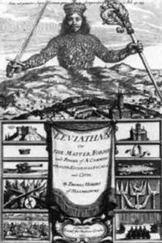Thomas Hobbes - Leviathan
Здесь есть возможность читать онлайн «Thomas Hobbes - Leviathan» — ознакомительный отрывок электронной книги совершенно бесплатно, а после прочтения отрывка купить полную версию. В некоторых случаях можно слушать аудио, скачать через торрент в формате fb2 и присутствует краткое содержание. Жанр: unrecognised, на английском языке. Описание произведения, (предисловие) а так же отзывы посетителей доступны на портале библиотеки ЛибКат.
- Название:Leviathan
- Автор:
- Жанр:
- Год:неизвестен
- ISBN:нет данных
- Рейтинг книги:5 / 5. Голосов: 1
-
Избранное:Добавить в избранное
- Отзывы:
-
Ваша оценка:
- 100
- 1
- 2
- 3
- 4
- 5
Leviathan: краткое содержание, описание и аннотация
Предлагаем к чтению аннотацию, описание, краткое содержание или предисловие (зависит от того, что написал сам автор книги «Leviathan»). Если вы не нашли необходимую информацию о книге — напишите в комментариях, мы постараемся отыскать её.
libreka classics – These are classics of literary history, reissued and made available to a wide audience.
Immerse yourself in well-known and popular titles!
Leviathan — читать онлайн ознакомительный отрывок
Ниже представлен текст книги, разбитый по страницам. Система сохранения места последней прочитанной страницы, позволяет с удобством читать онлайн бесплатно книгу «Leviathan», без необходимости каждый раз заново искать на чём Вы остановились. Поставьте закладку, и сможете в любой момент перейти на страницу, на которой закончили чтение.
Интервал:
Закладка:
And From Conscience Of Deserving To Be Hated
To have done more hurt to a man, than he can, or is willing to expiate, enclineth the doer to hate the sufferer. For he must expect revenge, or forgivenesse; both which are hatefull.
Promptnesse To Hurt, From Fear
Feare of oppression, disposeth a man to anticipate, or to seek ayd by society: for there is no other way by which a man can secure his life and liberty.
And From Distrust Of Their Own Wit
Men that distrust their own subtilty, are in tumult, and sedition, better disposed for victory, than they that suppose themselves wise, or crafty. For these love to consult, the other (fearing to be circumvented,) to strike first. And in sedition, men being alwayes in the procincts of Battell, to hold together, and use all advantages of force, is a better stratagem, than any that can proceed from subtilty of Wit.
Vain Undertaking From Vain-glory
Vain-glorious men, such as without being conscious to themselves of great sufficiency, delight in supposing themselves gallant men, are enclined onely to ostentation; but not to attempt: Because when danger or difficulty appears, they look for nothing but to have their insufficiency discovered.
Vain-glorious men, such as estimate their sufficiency by the flattery of other men, or the fortune of some precedent action, without assured ground of hope from the true knowledge of themselves, are enclined to rash engaging; and in the approach of danger, or difficulty, to retire if they can: because not seeing the way of safety, they will rather hazard their honour, which may be salved with an excuse; than their lives, for which no salve is sufficient.
Ambition, From Opinion Of Sufficiency
Men that have a strong opinion of their own wisdome in matter of government, are disposed to Ambition. Because without publique Employment in counsell or magistracy, the honour of their wisdome is lost. And therefore Eloquent speakers are enclined to Ambition; for Eloquence seemeth wisdome, both to themselves and others
Irresolution, From Too Great Valuing Of Small Matters
Pusillanimity disposeth men to Irresolution, and consequently to lose the occasions, and fittest opportunities of action. For after men have been in deliberation till the time of action approach, if it be not then manifest what is best to be done, tis a signe, the difference of Motives, the one way and the other, are not great: Therefore not to resolve then, is to lose the occasion by weighing of trifles; which is pusillanimity.
Frugality,(though in poor men a Vertue,) maketh a man unapt to atchieve such actions, as require the strength of many men at once: For it weakeneth their Endeavour, which is to be nourished and kept in vigor by Reward.
Confidence In Others From Ignorance Of The Marks Of Wisdome and Kindnesse Eloquence, with flattery, disposeth men to confide in them that have it; because the former is seeming Wisdome, the later seeming Kindnesse. Adde to them Military reputation, and it disposeth men to adhaere, and subject themselves to those men that have them. The two former, having given them caution against danger from him; the later gives them caution against danger from others.
And From The Ignorance Of Naturall Causes
Want of Science, that is, Ignorance of causes, disposeth, or rather constraineth a man to rely on the advise, and authority of others. For all men whom the truth concernes, if they rely not on their own, must rely on the opinion of some other, whom they think wiser than themselves, and see not why he should deceive them.
And From Want Of Understanding
Ignorance of the signification of words; which is, want of understanding, disposeth men to take on trust, not onely the truth they know not; but also the errors; and which is more, the non-sense of them they trust: For neither Error, nor non-sense, can without a perfect understanding of words, be detected.
From the same it proceedeth, that men give different names, to one and the same thing, from the difference of their own passions: As they that approve a private opinion, call it Opinion; but they that mislike it, Haeresie: and yet haeresie signifies no more than private opinion; but has onely a greater tincture of choler.
From the same also it proceedeth, that men cannot distinguish, without study and great understanding, between one action of many men, and many actions of one multitude; as for example, between the one action of all the Senators of Rome in killing Catiline, and the many actions of a number of Senators in killing Caesar; and therefore are disposed to take for the action of the people, that which is a multitude of actions done by a multitude of men, led perhaps by the perswasion of one.
Adhaerence To Custome, From Ignorance Of The Nature Of Right And Wrong Ignorance of the causes, and originall constitution of Right, Equity, Law, and Justice, disposeth a man to make Custome and Example the rule of his actions; in such manner, as to think that Unjust which it hath been the custome to punish; and that Just, of the impunity and approbation whereof they can produce an Example, or (as the Lawyers which onely use the false measure of Justice barbarously call it) a Precedent; like little children, that have no other rule of good and evill manners, but the correction they receive from their Parents, and Masters; save that children are constant to their rule, whereas men are not so; because grown strong, and stubborn, they appeale from custome to reason, and from reason to custome, as it serves their turn; receding from custome when their interest requires it, and setting themselves against reason, as oft as reason is against them: Which is the cause, that the doctrine of Right and Wrong, is perpetually disputed, both by the Pen and the Sword: whereas the doctrine of Lines, and Figures, is not so; because men care not, in that subject what be truth, as a thing that crosses no mans ambition, profit, or lust. For I doubt not, but if it had been a thing contrary to any mans right of dominion, or to the interest of men that have dominion, That The Three Angles Of A Triangle Should Be Equall To Two Angles Of A Square; that doctrine should have been, if not disputed, yet by the burning of all books of Geometry, suppressed, as farre as he whom it concerned was able.
Adhaerence To Private Men, From Ignorance Of The Causes Of Peace Ignorance of remote causes, disposeth men to attribute all events, to the causes immediate, and Instrumentall: For these are all the causes they perceive. And hence it comes to passe, that in all places, men that are grieved with payments to the Publique, discharge their anger upon the Publicans, that is to say, Farmers, Collectors, and other Officers of the publique Revenue; and adhaere to such as find fault with the publike Government; and thereby, when they have engaged themselves beyond hope of justification, fall also upon the Supreme Authority, for feare of punishment, or shame of receiving pardon.
Credulity From Ignorance Of Nature
Ignorance of naturall causes disposeth a man to Credulity, so as to believe many times impossibilities: for such know nothing to the contrary, but that they may be true; being unable to detect the Impossibility. And Credulity, because men love to be hearkened unto in company, disposeth them to lying: so that Ignorance it selfe without Malice, is able to make a man bothe to believe lyes, and tell them; and sometimes also to invent them.
Curiosity To Know, From Care Of Future Time
Anxiety for the future time, disposeth men to enquire into the causes of things: because the knowledge of them, maketh men the better able to order the present to their best advantage.
Читать дальшеИнтервал:
Закладка:
Похожие книги на «Leviathan»
Представляем Вашему вниманию похожие книги на «Leviathan» списком для выбора. Мы отобрали схожую по названию и смыслу литературу в надежде предоставить читателям больше вариантов отыскать новые, интересные, ещё непрочитанные произведения.
Обсуждение, отзывы о книге «Leviathan» и просто собственные мнения читателей. Оставьте ваши комментарии, напишите, что Вы думаете о произведении, его смысле или главных героях. Укажите что конкретно понравилось, а что нет, и почему Вы так считаете.












